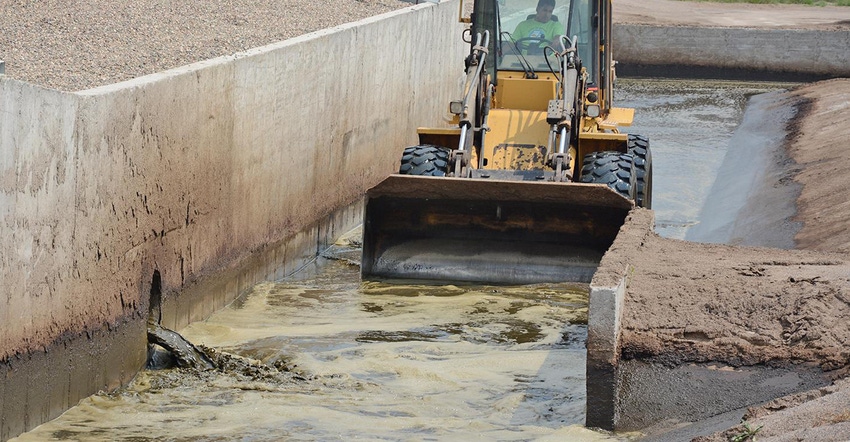
Excessive summer rainfall in southern Minnesota challenged some livestock producers as they scrambled to stem manure overflow from storage basins.
Forrest Peterson, Minnesota Pollution Control Agency public information officer based in Marshall, Minn., said last week that 12 to 15 farm sites either had discharges or saw manure encroaching on storage-pit free boards following heavy rains in June and early July. The free board is the top area of a storage structure that is reserved for emergencies — and thus, not meant to be holding in manure.
Farmers must call the Minnesota Duty Officer immediately at 800-422-0798 (calls are answered 24/7) if their manure storage facilities overflow, if manure enters surface waters or if their manure storage structure is inundated by floodwaters.
If manure storage facilities are in danger of overflowing, farmers can contact the MPCA at 800-657-3864 or 651-296-6300 during regular business hours and ask for a feedlot staff person.
Farmers in feedlot-delegated counties also may contact county feedlot staff. A list of feedlot permitting and compliance field staff and contact information is available.
Farmers that hold federal National Pollutant Discharge Elimination System (NPDES) or State Disposal System (SDS) permits and have pit discharge must submit a five-day discharge report and notify the agency when the level encroaches on the freeboard, according to MPCA.
Having the permits recognizes that discharges may result from chronic rainfall events. Peterson said.
If facing a basin overflow, Peterson encourages farmers to contain the manure and water if possible by putting up wooden dikes or using round forage bales.
“While we can’t predict the weather, it helps to plan and be prepared for what might happen,” Peterson said. Additional investment in storage and conservation practices can be cost-effective forms of insurance. They also reduce the risk of economic loss of nutrients from surface-applied manure without incorporation.
Farmers with open feedlots should scrape and haul weekly, if possible.
For more information about flooding and the environmental problems it can create, visit MPCA’s website page that discusses minimizing flooding risks.
Also, check out MPCA’s factsheet on managing manure during adverse weather conditions.
About the Author(s)
You May Also Like






